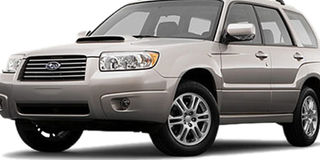Why and when should I replace my fuel filter?

Hello Paul, I always service my Subaru Forester on time but lately, it has started losing power. The mechanic has changed the spark plugs and air cleaner but there is no change. Now he tells me that I need to buy an expensive fuel filter. How do I know that the fuel filter needs to be changed? Wilson
Hello Wilson, a car fuel filter needs to be renewed or replaced periodically in line with the car manufacturer’s guidelines because it gets clogged with time.
A fuel filter filters impurities such as rust and dirt from the fuel as it is being pumped from the tank to the engine.
Whereas fuel quality controls in the delivery chain of reputable fuel companies employ modern fuel batch testing labs at their depots and heavy duty filtering systems to prevent dirt and rust infiltration in the fuel, overtime, there will be a buildup of dirt, moisture and corrosion in our car fuel tanks.
A fuel filter fitted in the tank or engine bay such as in your Subaru is designed to trap the dirt or corrosion particles to protect the vital fuel system components such as the pump and fuel injectors.
Older pre-1990s gasoline powered car plastic fuel filters were serviced more frequently. The post 1990 canister tank fitted gasoline fuel filters are supposed to be replaced after 100,000kms. Diesel filters of pre-2000 cars are usually replaced at every service while many post 2000 petrol and diesel car filters can be replaced at 50,000 or 100,000kms. Again, each manufacturer makes a recommendation in the car service schedule.
Sometimes, a mechanic can make a recommendation to replace a fuel filter based on the car engine performance, evidence of fuel contamination or absence of a reliable mileage based on maintenance schedule.
There is everything to gain when you renew the fuel filter because you improve fuel pressure and allow a more efficient engine performance. Also, fueling with differentiated fuels designed with cleaning additives helps to breakdown and prevent buildup of dirt and corrosion in the fuel system components.




